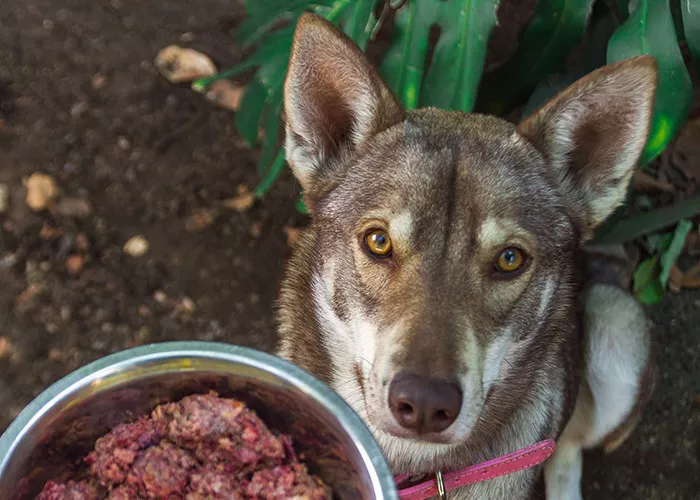Thanksgiving is a time for feasts and family, and many pet owners may be tempted to share some turkey with their dogs. But before handing over a bite, it’s important to understand what parts of the holiday bird are safe for your furry friend and what should be avoided.
Is Turkey Safe for Dogs?
Turkey, when properly cooked and prepared, can be a healthy treat for your dog. It’s a high-quality source of protein that supports muscle health, boosts the immune system, and provides essential nutrients like vitamins B2, B6, B12, and minerals like zinc, potassium, and selenium. In fact, turkey is commonly found in many commercial dog foods and is a go-to protein for dogs with special dietary needs, such as those with chronic pancreatitis.
However, the turkey served at your holiday feast is often seasoned with ingredients that may not be safe for dogs. While plain, well-cooked turkey can be a nutritious snack, there are several important precautions to consider.
What to Avoid When Sharing Thanksgiving Turkey
Dr. Ivana Crnec, a veterinarian, offers several tips to ensure your dog can safely enjoy a bite of turkey without risking their health:
Remove the Skin
Turkey skin may be delicious for humans, but it’s high in fat. Just a small portion can trigger pancreatitis, a serious and painful condition for dogs. Always remove the skin before offering turkey to your pet.
Stick to White Meat
White meat is leaner than dark meat and contains more protein and fewer calories. It’s a better choice for your dog, but always trim off any visible fat to reduce the risk of stomach upset.
Watch the Spices
While spices like salt, pepper, and garlic enhance the flavor of turkey, they can be harmful to dogs. Garlic and onion, in particular, are toxic and can cause serious health problems like hemolytic anemia. Avoid seasoning your turkey if you plan to share it with your dog.
Skip the Stuffing
Stuffing often contains onions, garlic, and even raisins—ingredients that can be toxic to dogs. Raisins, in particular, have been linked to kidney damage in dogs, so it’s best to skip the stuffing altogether.
No Gravy
Gravy is often rich and greasy, which can upset your dog’s stomach. Keep it away from your pet to prevent digestive issues.
Avoid Turkey Bones
Cooked turkey bones can splinter easily, posing a serious choking hazard or causing internal injuries. Never give your dog bones from a cooked turkey.
Go Small
Even if turkey seems safe, it’s best to offer it in small amounts. Large portions of new food can cause digestive upset, especially for dogs with sensitive stomachs. Additionally, poultry can trigger allergies in some dogs, leading to symptoms like vomiting, diarrhea, and skin rashes.
No Raw Turkey
Raw turkey can carry harmful bacteria like Salmonella, which can cause gastrointestinal illness. For safety, always ensure the turkey you give your dog is thoroughly cooked.
The Bottom Line
Plain, cooked, de-boned, and skinless turkey is generally safe for dogs when served in moderation. However, the rich, seasoned turkey served at Thanksgiving—along with the stuffing, gravy, and bones—should be off-limits. By following these simple guidelines, you can safely share a bite of turkey with your dog without the risk of an emergency vet visit. This Thanksgiving, remember that keeping your dog healthy is one more reason to be thankful!
Related topics:
A Five-Star Staycation with My Dog: An Unexpected Success
Study Reveals Three Distinct Types of Dog Owners
Couple Sacrifices Wedding Fund to Save Abandoned Puppy’s Life


